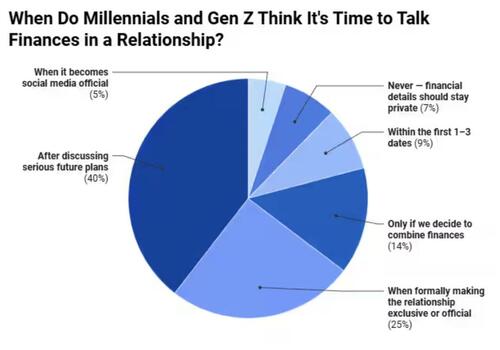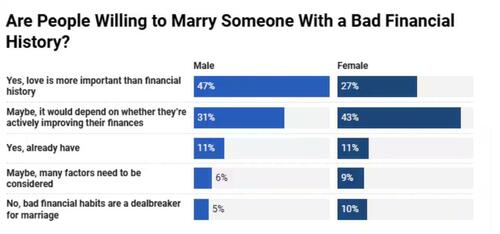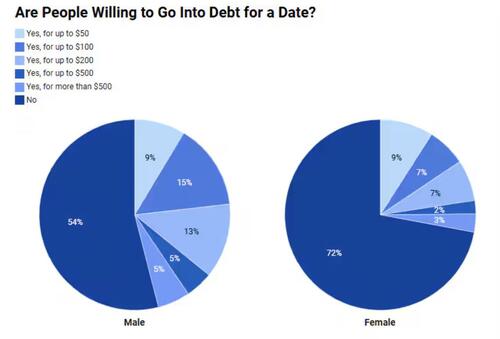You can thank the Tik Tok, Instagram world we live in...
Money may not buy love, but for many young adults, it’s still the ticket to attention. A new study shows that two in five Gen Zers admit going into debt just to impress others — often in dating and social situations, according to Credit One Bank.
The pressure to perform financially is high among younger generations. Half of Gen Z and millennials (51%) say they’ve faked wealth or success, with Gen Z leading at 54%. Nearly 38% admit they’ve damaged their credit score or gone into debt to impress someone, and 37% say they’d even overdraft their accounts for a date. Men feel that pressure most: 46% would go into debt for a single date, compared to just 28% of women.
Credit One Bank writes that more than half of consumers say a high credit score makes someone more attractive, while nearly 70% would lose confidence in a boss with bad credit. Still, disclosure is rare: 54% of Gen Z and millennials prefer not to share their financial details with a partner until things get serious. Only 8% call poor financial history a marriage dealbreaker. Nearly half (48%) say they’d marry someone with a shaky financial past, especially if that person was improving. Gender gaps persist: men (47%) are more forgiving, while women are twice as likely to reject a partner over money issues (10% versus 5%).
Money talk remains awkward in friendships. Over 70% of women almost never discuss finances with friends, compared to about 60% of men. Yet with romantic partners, the story changes: 67% check in at least monthly, and 10% do so daily. Despite the discomfort, loyalty runs deep. More than half (51%) would help friends in financial crisis, though one in three say they’d stay cautious after receiving bad advice.
The study says financial independence is a top priority for many. Fifty-three percent say they’re determined to go it alone, while others admit they’d lean on family (27%) or even a partner (20%) for help. Gen Z often turns online for advice — even 21% from ChatGPT — but parents remain the leading source at 60%. Millennials, meanwhile, rely less on family (44%) and more on professionals (43%).
Finances don’t just influence relationships; they impact workplace credibility. Forty-three percent say they’d lose confidence in a boss with bad credit, while one in five would admire the honesty. When asked how they’d feel if loved ones knew their financial details, only a third felt proud. Men are more likely than women to feel confident, while higher earners are far prouder than those making under $50,000.
The bottom line: personality may still matter most in relationships, but today’s singles are swiping with one eye on the credit score. Between debt-fueled dating, social media pressures, and the drive for independence, money isn’t just part of the conversation — it’s often the deciding factor.
Read the full study here.
Loading recommendations...


